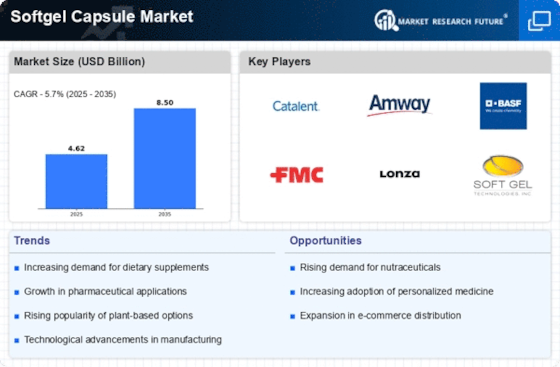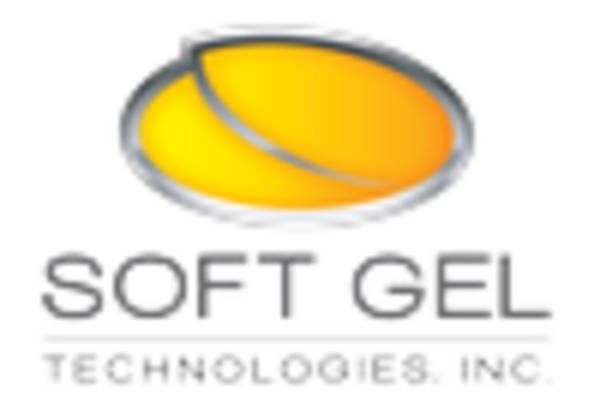Market Analysis
In-depth Analysis of Softgel Capsule Market Industry Landscape
In the realm of pharmaceutical capsule manufacturing, gelatin has long been the material of choice. However, recent years have witnessed a notable shift driven by ongoing technological advancements and a quest for alternatives. This shift has given rise to the emergence of non-gelatin softgel capsules, a revolutionary development in the pharmaceutical industry.
Non-gelatin softgel capsules represent a departure from the traditional use of gelatin, offering a viable alternative for pharmaceutical formulations. The primary components of these capsules are starch and carrageenan, and their development has been fueled by a concerted effort to cater to specific consumer preferences and requirements.
One of the key driving forces behind the increasing production of non-gelatin softgel capsules is the rising demand from the growing vegetarian population. As more individuals adopt vegetarian lifestyles, there is a parallel need for pharmaceutical products that align with these dietary choices. Non-gelatin softgel capsules, being free from animal-derived gelatin, provide a compelling solution for vegetarians seeking pharmaceutical options that resonate with their dietary preferences.
Moreover, these capsules have gained popularity in the Middle Eastern population, where there is a discernible preference for non-gelatin alternatives. The cultural and dietary considerations in the Middle East have contributed to a significant market demand for capsules that do not rely on gelatin as a primary ingredient. Manufacturers, recognizing this trend, have strategically increased their production of non-gelatin softgel capsules to meet the specific needs of this demographic.
The formulation of non-gelatin softgel capsules involves the incorporation of kappa carrageenan and iota carrageenan. These components contribute to the capsules' notable strength and flexibility, distinguishing them from traditional gelatin capsules. The presence of carrageenan, derived from red seaweed, not only imparts structural integrity to the capsules but also aligns with the broader trend of utilizing natural and sustainable ingredients in pharmaceutical formulations.
One of the significant advantages associated with non-gelatin softgel capsules is their suitability for concentrated fills or formulations containing salts of weak acids and strong bases. This versatility expands their applicability in pharmaceutical manufacturing, allowing for the encapsulation of a diverse range of drug formulations. The capsules have demonstrated their stability over time, with specific instances showcasing an approximate shelf life of 18 months when containing substances like ibuprofen.
As the pharmaceutical industry evolves, driven by consumer preferences, technological innovations, and a global shift toward sustainable practices, non-gelatin softgel capsules represent a noteworthy development. The increased production of these capsules by pharmaceutical manufacturers underscores the industry's responsiveness to changing market dynamics and the demand for alternative formulations.
In conclusion, the advent of non-gelatin softgel capsules marks a significant departure from traditional gelatin-based capsules, offering a compelling alternative driven by technological advancements and changing consumer preferences. The increased production of these capsules caters to the rising demand from vegetarian populations and aligns with the preferences of specific demographics, such as the Middle Eastern population. With their unique composition, strength, and flexibility, non-gelatin softgel capsules stand as a testament to the dynamic and innovative nature of the pharmaceutical industry, meeting the diverse needs of consumers and expanding the possibilities in drug delivery systems.

















Leave a Comment